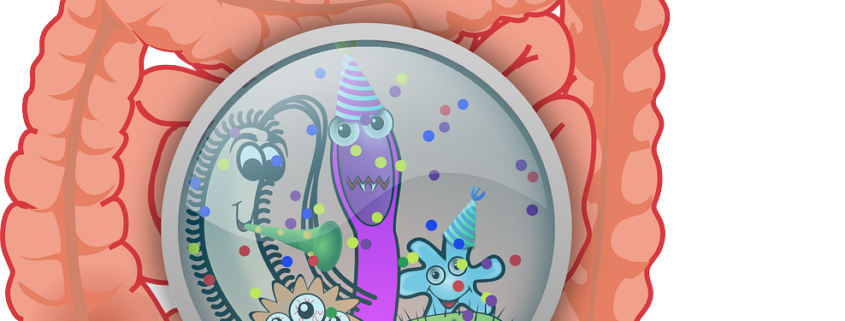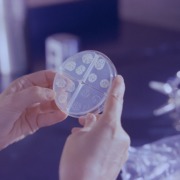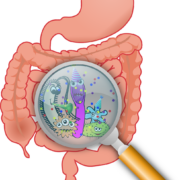Gut Microbes Play an Important Role in Colorectal Cancer
By Emmanuel Olaniyan
Colorectal cancer (CRC) is one of the more common types of cancer and is the third largest cause of cancer-related deaths worldwide. According to the American Cancer Society, 153,020 new cases of CRC are expected to be detected throughout the U.S. in 2023, out of which 52,550 people will die from the disease. Considering these figures, it is important to raise public awareness about CRC in order to decrease the number of CRC-related deaths and new cases.
Several studies have researched the causes of CRC, and age, diet, genetics, and the gut microbiota have all been identified as risk factors in various ways. The gut microbiome, in particular, has been shown to play an important role in a number of diseases, and research has begun to focus heavily on its role in CRC.
What is the Gut Microbiome?
The human gut microbiota refers to the trillions of microbes, such as bacteria, viruses, fungi, and others present in the human digestive tract. The microbiome is the environment they live in. Most microbes in the body are beneficial, but they may become harmful when out of balance.
The gut microbiota is crucial for the overall functioning of a healthy digestive system because it supports the absorption of energy from digested food, guards against pathogens, controls immunological response, and fortifies biochemical barriers of the intestine. However, when harmful bacteria enter the gastrointestinal tract through eating contaminated food or drinking contaminated water and cause infection, all of these advantageous activities could be disrupted.
Jaeho Kim and Heung Kyu Lee published a study in 2022 that found a strong association between gut microbiota and CRC. They came to the conclusion that the patients with CRC experienced dysbiosis (an imbalance in bacterial composition, changes in bacterial metabolic activities, or changes in bacteria distribution within the gut) more frequently than healthy individuals. Opportunistic infections were discovered to be more prevalent, and intestinal inflammation has been shown to be reduced along with the percentage of bacteria that produce butyrate, which is an essential component of our digestive system that reduces inflammation in the digestive tract, protects the brain and prevents cancer.
How Can We Maintain a Healthy Gut Microbiome?
Maintaining good hygiene and being mindful of the foods we eat can help keep our gut microbiota healthy. Studies have shown that eating more processed foods and a low intake of dietary fiber increase the risk of CRC. For this reason, it is recommended to consume fermented foods like cheese, soy sauce, vinegar, and yogurt as well as meals high in fiber like whole grains. It has been established that the bacteria present in these fermented foods are similar to those linked to gastrointestinal health.
Finally, a decrease in processed food consumption and antibiotic use lowers the risk of developing CRC caused by gut microbes.
Emmanuel Olaniyan is a Colorectal Cancer Prevention Intern with the Colon Cancer Foundation.
Image source: OpenClipart-Vectors from Pixabay







Leave a Reply
Want to join the discussion?Feel free to contribute!